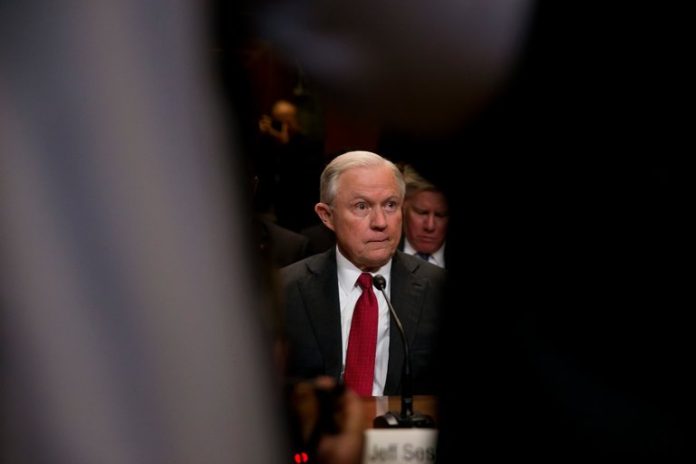
WASHINGTON — Bobby Amos stood outside of an Episcopal church in Alabama last spring, begging police to kill him. He had been suicidal earlier and held a gun to his head, his wife said, and she had hidden the weapon at the church, where he had followed her to retrieve it.
There was little to indicate that Mr. Amos, 39, was a danger to anyone but himself that day. He was arrested unarmed outside the church, in need of treatment and counseling, according to his lawyer, Fred Tiemann. Police recovered the pistol from the building.
Federal prosecutors, citing Mr. Amos’s conviction of felony robbery as an adult at age 15, instead charged him with illegally possessing a firearm. He pleaded guilty in November and is serving a three-year sentence in federal prison.
Urged by Attorney General Jeff Sessions to punish offenders as harshly and as quickly as possible, federal prosecutors have increasingly pursued low-level gun possession cases, according to law enforcement officials and an examination of court records and federal crime statistics. Mr. Amos’s conviction was part of the Justice Department’s broad crackdown on gun violence during the first 15 months of the Trump administration.
Mr. Sessions is putting into action his own long-held views on criminal justice, forged as a United States attorney in Alabama during the drug war. They reflect a philosophy popular among conservatives and long backed by the gun lobby: that the effective enforcement of existing laws can reduce crime without resorting to the passage of additional legislation.
“I believe very strongly in enforcing gun laws,” Mr. Sessions said in an interview with the far-right Breitbart News this year. “I believe there’s no value in having them on the books if they’re not prosecuted.”
Mr. Sessions’s approach has touched off a debate about whether he is making the country safer from violent crime, as he and President Trump have repeatedly vowed to do, or devoting resources to low-level prosecutions that could instead be put toward pursuing bigger targets like gun suppliers.
“It’s a good idea to enforce the existing gun laws,” said Avery Gardiner, co-president of The Brady Campaign, a nonprofit coalition that works to combat gun violence. “That’s something prosecutors should do. But going only after the people who are purchasing the guns illegally is only part of the story.”
Local police, who have for years sought more muscle from federal law enforcement, welcomed Mr. Sessions’s more aggressive approach.
“We have been trying to send a message,” said J. Thomas Manger, president of the Major Cities Chiefs Association, which represents police departments across the country. “The bad guys have a real fear of federal prosecutions versus state prosecutions.”
Penalties for federal gun convictions are steep. On average, firearms defendants spend six years…










